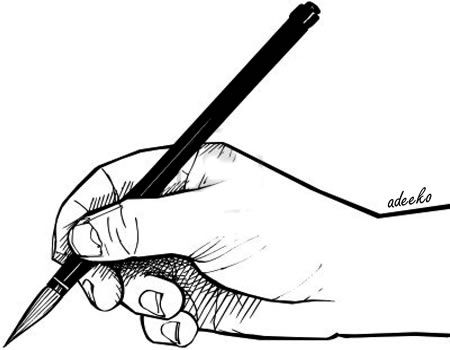When injustice becomes law, resistance becomes a duty—Thomas Jefferson
THE last few weeks have no doubt been a rite of passage for the nascent democratic rule in Nigeria. The Nigerian ruling class has never been collectively so convulsed into the precipice, signaling the end to their mischievous rule. The youths went on rampage just like weeds, springing out from the blues, starting with a call for the abolition of a unit in the Nigeria Police Force codenamed SARS. It is regrettable that what started as a peaceful protest soon degenerated into what could be regarded as a clear shadow of civil war. The questions that could be asked are that, in the long run, can it be said that the warring parties have actually learnt, at least, both didactic and punitive lessons from their undoing? Should we conclude that the actions of the government towards signal danger to those who were actively at the vanguard of the protest? Shall we be right to say the cyclonic formulation of various panels of enquiry is a fair prediction of speedy trashing of whatever recommendation that maybe coming from all the panels, just like what we have witnessed in previous historic bogus panels? The more you look, the less you see. The truth is, only time shall tell: the unfolding scenarios coming after the quenching of the protest are for posterity to judge.
To further quip, are our irascible actions during the protest commensurate with and justifiable looking at the government’s persistent, cavalier attitude towards its citizen sordid plight?Is the government really propelled into taking a sincere action towards changing the narrative of bad governance in this country? The big question is, have the youths really made their points known to the authorities, loud and clear? The assessment is that the protest is unarguably a justifiable action in a democratic setting, and where it resulted in wanton vandalism of properties, looting jamborees and other malfeasance, then such should be attributed to the government’s irresponsive action towards the outcry of the irate youths. However, they further hold the belief that rather than violence, instead dialoguing should be engaged. In 1948, Henry David Thoreau conjoined the phrase civil disobedience wherein he used that in describing his dissident refusal to pay the state poll tax implemented by the American government to prosecute a war in Mexico and to enforce the Fugitive Slave Law.It is undeniable that civil disobedience has made martyrs, heroes and great reformers of great countries to reshape and reconfigure the odious narratives of their countries. While it is very correct to say that civil disobedience is justified in a society where the situations of life is stiflingly unbearable, where the government has blatantly failed in fulfilling the basic terms of its social contract at the detriment its people, where government’s successive policies irredeemably decimate the hope for a better Nigeria, it is however subject to philosophical debate where a protest degenerates into civil disobedience and where it is continuously staged without a clear rule of internal assessment.
Throughout history, acts of civil disobedience have helped to force a reassessment of society’s moral parameters. The Boston Tea Party, the suffragette movement, the resistance to British Rule in India led by Gandhi, the US civil rights movement led by Martin Luther King Jr., Rosa Parks and co, even the resistance of apartheid in South Africa, student sit-ins against the Vietnam War, the democracy movement in Myanmar/Burna led by Ayng San SuuKyi, are all instances where civil disobedience proved to be an important mechanism for political reconfiguration and social change. The youths were, and obviously are still justifiably enraged by the cluelessness of the successive governments in Nigeria. They are despondently despaired and consequently, the ruling class should bear in mind that the youths would always cash in on the government’s habitual inconsiderate attitudes to the country’s sickening plight. They are restive and are expected to take to recurring revolutionary actions against bad governance, ravishing employment and overall deplorable state of things in the country.
No sooner had the youths taken their destiny in their own hands, by breaking into warehouses where Covid-19 palliates were hoarded than the President’s daughter self-vindicated her father, thus exonerating him of all the rots in associated with Nigeria’s political system. Rather than attracting exoneration as she projected, it is in fact a further indictment on Mr. President’s sheer failure to genuinely deliver the promises in his campaign manifesto. No doubt, the president cannot physically be present everywhere, but then, this technically will point to the fact that, except President Buhari himself personally handles every core programme of his government, Nigerians should erase the thought of benefitting in the dividends of the so-called democratic government. It is becoming an open secret that the Aso Rock figure is swamped by opportunist jaguda, who take advantage of the laxity on the part of the head of government!
The nexus between the justified and the vindicated in the recent EndSARS protest is that, while the youths inadvertently transformed from being the justified to the anti-justified, the government cunningly undressed itself off the garment of global disgrace, and non-justified to the self-justified. Permit me to conclude by saying that, in the coming days, it is projected that we, the oppressed shall shine our eyes and be on the alert for the sudden realignment and smuggled identification of the members of the oppressor class, joining the oppressed in the struggle for “liberation”, thus, moving from one poll of contradiction to the other end. The masses should be mindful of the fact that they are inseparably glued to their marks and origins of prejudice, embezzlement, anti-democracy and all forms of corrupt practices. Accordingly, these adherents to the people’s cause constantly run the risk of falling into a type of generosity as malefic as that of the oppressors. I must say that the generosity of Nigeria’s political class in identifying themselves with the course of the genuine EndSARS protesters is nourished by an unjust order, which they would want to maintain in order to justify their mischievous alignment. As a weapon for scabbard, they will talk more about the people, though, with innermost distrust in the masses’ action. In all, the fact remains that trusting the people is the indispensable precondition for revolutionary change. A real humanist and democrat can be identified more by his trust in the people, which engages him in their struggle, than by a thousand distrustful actions in their favour, without that patriotic trust.
- Balogun, a legal practitioner and public affair analyst, writes in from Lagos via rilwanbalogun60@yahoo.com
YOU SHOULD NOT MISS THESE HEADLINES FROM NIGERIAN TRIBUNE
The All Progressives Congress (APC) has told a Federal High Court in Abuja, that the Comrade Adams Oshiomhole-led National Working Committee (NWC) was sacked to solve the internal leadership crises rocking the party. The party also said that immediately the Caretaker/Extraordinary Convention Planning Committee was put in place after the NWC’s dissolution, the crises that had characterised its affairs were laid to rest…
Post COVID-19: Kano based industrialist tasks FG on economy
A Kano based industrialist, Chief Kalu Ogbonnaya, has advised the Federal Government to take necessary steps to stimulate the nation’s economy to prevent a recession post COVID-19. Ogbonnaya who spoke in an interview with the News Agency of Nigeria (NAN) on Thursday in Kano, said as a result of the coronavirus raving the world, no business has been moving…






